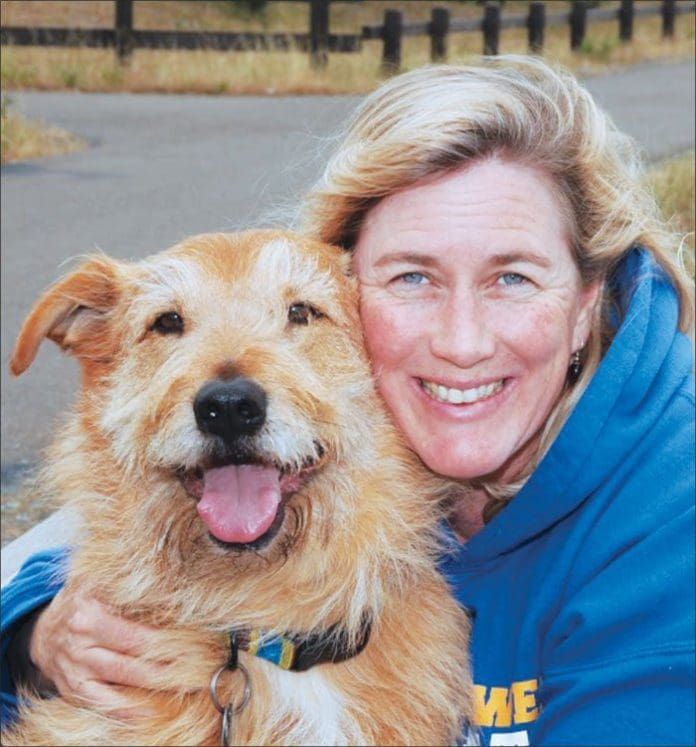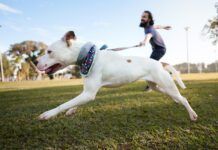I often dog-sit for friends and relatives. It’s easy for me, because I have all sorts of dog gear, food, treats, and chews laying around. Also, my own home and the house down the block where I have my office are both securely fenced (and well-outfitted with crates and dog beds of various sizes). Plus, if the dogs are fidgety and in need of exercise and stimulation, I can grab my camera, load the dogs into my car, and head out to a nearby open space area to run them on trails or allow them to swim in the river – and any good pictures I get, or interesting experiences I have with the dogs, are helpful to my job!

But I realized this summer that my own dog is not nearly as comfortable being left with other people as their dogs are happy being left with me. (I’m aware that it’s not me that the dogs enjoy; it’s the doggie Disneyland setup, complete with nice, friendly dogs to play with and lots of enriching activities.) When left in the care of someone other than my husband, Otto frets and mopes, whines and paces. At the vet, he’s the dog who has to be lifted and put into the cage (he won’t go in on cue like he does at home, because he knows it’s not home).
In contrast, our other dog, Tito (who was left by a relative with us more than three years ago), would go with anyone who was nice to him. He sees every outing as an opportunity to meet people who love him. And when we visit other people’s homes, he immediately starts guarding their dogs’ dishes, takes over the cushiest dog beds, steals any tennis balls or rawhide chews he finds, and climbs into and defends any nice person’s lap from the dogs who live there. Hey! He might end up living there, too; it’s happened to him before! Tito had been in the care of five or six different family members prior to coming to stay here, so maybe he can be forgiven for so assertively making himself at home anywhere he goes.
As opportunistic as he is, I think Tito is far healthier from an emotional standpoint than Otto is. As flattering as it might feel to have your dog highly bonded to you, it’s not a very good thing for him. I’ve fostered a number of shelter dogs who had lost their owners (whether the owners lost them, died, or were forced to surrender them due to financial or health reasons); the ones who are willing and able to approach and bond with new people find homes readily. It takes far longer to place the ones who remain distant and morose, seeming to wait for their special people.
Working dogs (including many herding, hunting, police, military, and service dogs) are often trained and handled by a number of different people in their lifetimes, and while they almost always bond tightly with the person who handles them the most, they are taught from an early age to trust and work with anyone who speaks their language – any people who know their work and their cues. These dogs also tend to be confident, accepting, and friendly with new people.
I don’t plan to become separated from my dog for very long, but for his sake, I’m going to make an effort to teach him to be happier with other people, in other places than home. I think it’s time we take some more classes – in agility, K9 Nose Work, whatever – and I allow other trustworthy people to handle him, too. I’d like to know that if anything ever happened to me, he’d have no problem adjusting to life without me.






